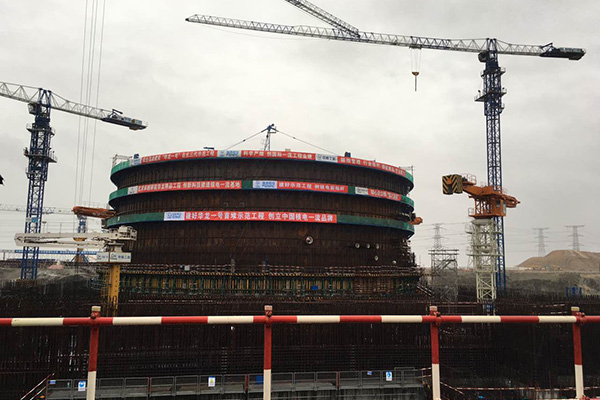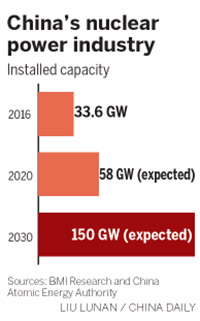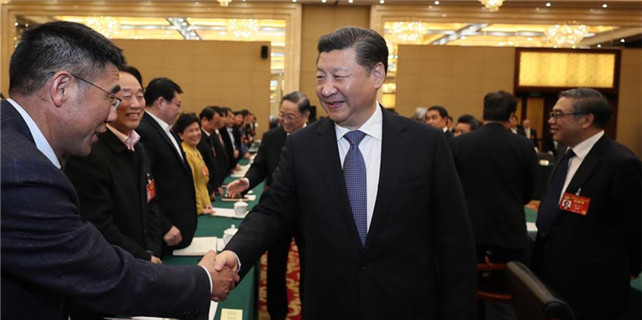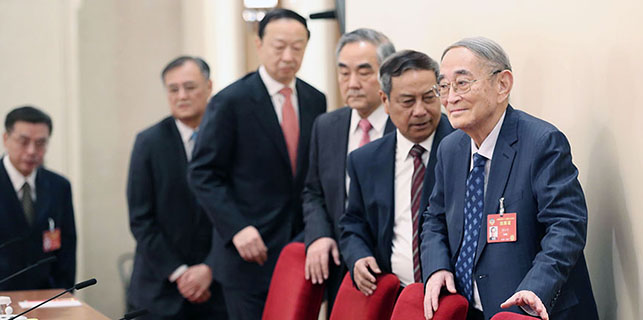Hualong One reactor 'worthy of promotion'
 |
|
The construction site of the first Hualong One nuclear power unit, coded as the No 5 nuclear power unit in Fuqing, Fujian province on Dec 9, 2015. [Photo/chinadaily.com.cn] |
Wang Shoujun, chairman of China National Nuclear Corp, said that the Hualong One reactor technology is advanced and mature enough to be promoted.

"The Hualong One reactor has passed all safety requirements and preliminary safety reviews and China should give priority to the country's third-generation nuclear technology in future nuclear power projects," said Wang, who is attending the annual session of the National Committee of the Chinese People's Political Consultative Conference in Beijing.
"The pace of nuclear power projects in recent years is lagging and as the expanding economy in China is pointing to a growing demand for energy, nuclear power is not an option but a must-have in the future," Wang said.
Out of safety concerns, China put a pause on nuclear construction after Japan's Fukushima nuclear accident in 2011, when approvals for new nuclear plants were suspended and a nationwide safety review was launched.
Beijing lifted its development freeze in 2014, permitting nuclear power plants that were located in coastal areas. The country is also capable of ensuring the safe operation of nuclear power plants built inland, Wang said.
"The technology works the same for both coastal and inland nuclear power plants and those that meet the safety requirements in coastal areas work the same as those inland," said Zheng Yanguo, deputy head of China National Nuclear Power Co Ltd.
The nuclear energy sector had not grown as much as other energy sources such as wind and solar, despite growing electricity demand, partly due to the lack of publicity," said Zheng, who is attending the ongoing annual session of the National People's Congress.
"Due to several nuclear disasters, the public is very concerned about nuclear plants and it's our responsibility to better inform society of their security," Zheng said.
The government has pledged that renewable energy will play an integral role in the push for greener growth, boosting the share of non-fossil energy to 15 percent by 2020 and 20 percent by 2030, with coal consumption reduced to 62 percent of energy use by 2020.
China published a nuclear industry white paper earlier this year, detailing policies regarding nuclear emergency preparedness, highlighting a "rational, coordinated and balanced" approach to nuclear security.






















